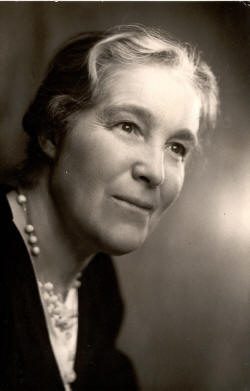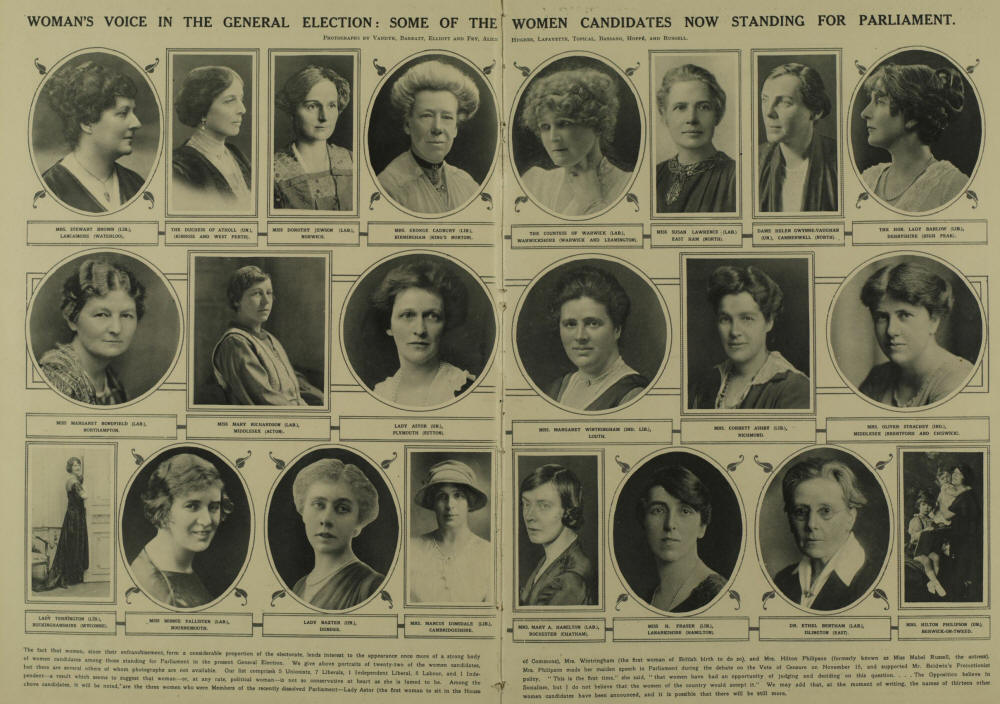

Queer Places:
Mount Holyoke College (Seven Sisters), 50 College St, South Hadley, MA 01075
Woodgate, now
Cumnor House, London Rd, Haywards Heath RH17 7HT, UK
33 Upper
Richmond Road, London SW 15
Wickens, Birch Grove, Haywards Heath,
Sussex
University of Cambridge, 4 Mill Ln, Cambridge CB2 1RZ
 Dame
Margery Irene Corbett Ashby, DBE (19 April 1882 – 15 May 1981) was
a British suffragist, Liberal politician, feminist and internationalist. Her name and picture (and those of 58 other women
and men's suffrage supporters)
are on the
plinth of the
statue of
Millicent Fawcett in
Parliament Square, London, unveiled in 2018.
Dame
Margery Irene Corbett Ashby, DBE (19 April 1882 – 15 May 1981) was
a British suffragist, Liberal politician, feminist and internationalist. Her name and picture (and those of 58 other women
and men's suffrage supporters)
are on the
plinth of the
statue of
Millicent Fawcett in
Parliament Square, London, unveiled in 2018.
Mary Stocks, Eleanor Rathbone, Alison Neilans, Edith Picton-Turbervill and Maude Royden were, as representatives of the NUSEC, among the delegates at the tenth congress of the International Alliance of Women for Suffrage and Equal Citizenship (IAWSEC) in 1926. The Board of the Alliance at the time was presided over by Margery Corbett Ashby and included among the international complement of its board members, Bessie Rischbieth of Australia who was also on the Finance Committee. Rathbone was the ‘chairman’ of the international committee on “Family Endowment or Allowances.” Alison Neilans represented the Association for Moral and Social Hygiene. The international matrix at this congress comprised hundreds of women, many of whom were self-declared feminists and who represented national and international organisations. Dr. Muthulakshmi Reddi was among the Indian delegates.
On November 3 1938, a large group of Neilans' feminist friends and colleagues wrote a letter to the editor of The Times requesting donations for a presentation of a gift to Alison Nielans. Among the women signatories of the “wide circle of friends” who wished “to pay a public tribute to the magnificent work” Nielans had accomplished were Nina Boyle, Nancy Astor, Margery Corbett Ashby, Marjorie Nunburnholme, Eva Harterr, Vera Laughton Matthews, Maude Royden, Jane Walker and Helen Wilson. Nina Boyle, Dr. Maude Royden and Nancy Astor were among the speakers. Nancy Astor “proposed Miss Nielans’s health,” and demonstrated the quick wit she was known for in claiming that Nielans’ successful contribution to the raising of the age of consent bill “had changed the lives of thousands of men throughout the world”. The Times did not report the content of Nina Boyle’s and Maude Royden’s speeches but quoted the Archbishop of York’s admiration that Nielans “manfully stood for the fundamental unity of moral law and ideal for all persons, races and sexes”. Several lesbians and spinsters in the international feminist sorority were attributed with masculine characteristics in association with their work. Nina Boyle was considered “mannish.” Alison Neilans was seen as “manfully” carrying out her duties. Katharine Furse was remembered in obituaries, as much for her physical prowess as a champion skier, as for her role in international feminism.


Margery Corbett Ashby was born at Danehill, East Sussex, the daughter of Charles Corbett, a barrister who was briefly Liberal MP for East Grinstead and Marie Corbett, herself a Liberal feminist and local councillor in Uckfield. Margery was educated at home. Her governess was the feminist polymath Lina Eckenstein. Eckenstein was to become her friend and assisted with her work.[1] She passed the Classical tripos as a student at Newnham College, Cambridge; but the university did not at that time give degrees to female students. She married lawyer Brian Ashby in 1910. Their only child, a son, Michael Ashby (1914-2004), was a neurologist who gave evidence as an expert witness at the 1957 trial of suspected homosexual serial killer John Bodkin Adams.[2]
With her sister Cicely and friends, she founded the Younger Suffragists in 1901. After deciding against teaching, she was appointed Secretary of the National Union of Women's Suffrage Societies in 1907. She served as President of the International Woman Suffrage Alliance from 1923 to 1946.[3] She received an honorary LLD at Mount Holyoke College, USA, in 1937 in recognition of her international work. In 1942 she went on a government propaganda mission to Sweden.[4] Ashby was one of the seventeen women candidates to contest a parliamentary election at the first opportunity in the General Election of 1918. She stood for Birmingham Ladywood against Neville Chamberlain the Unionist Coalition candidate. Her slogan was 'A soldier's wife for Ladywood'. Although she came third behind Chamberlain and the Labour candidate J.W.Kneeshaw, she forced Chamberlain to address women's issues during his campaign, one of the few candidates who tried. Her papers at the Women's Library at the LSE in London contain a selection of her affectionate letters to her husband who was still in France for the early stages of the campaign. Chamberlain kept his sisters up to date with the campaign and his letters are preserved in the Cadbury Research Library at the University of Birmingham. Together they provide a unique record of the candidates' contrasting view of the election campaign.[5] In 1922 and 1923 she contested Richmond, Surrey, 1924 Watford, 1929 Hendon, and 1935 and 1937 Hemel Hempstead.[6] Finally, she stood as an independent liberal with the backing of Radical Action at the 1944 Bury St Edmunds by-election.[7][8]
The archives of Margery Corbett Ashby are held at The Women's Library at the London School of Economics.[9]
My published books: